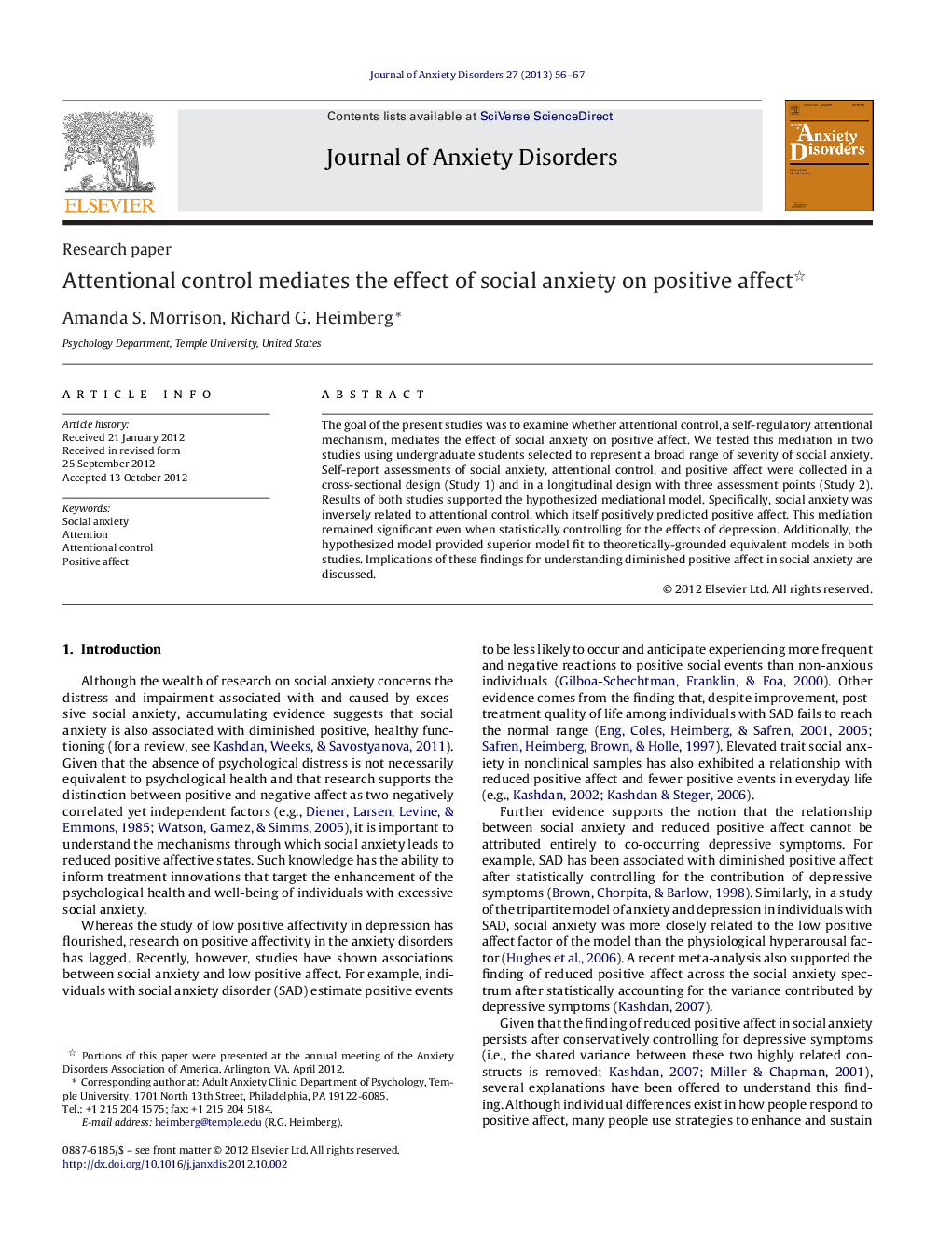| Article ID | Journal | Published Year | Pages | File Type |
|---|---|---|---|---|
| 909705 | Journal of Anxiety Disorders | 2013 | 12 Pages |
The goal of the present studies was to examine whether attentional control, a self-regulatory attentional mechanism, mediates the effect of social anxiety on positive affect. We tested this mediation in two studies using undergraduate students selected to represent a broad range of severity of social anxiety. Self-report assessments of social anxiety, attentional control, and positive affect were collected in a cross-sectional design (Study 1) and in a longitudinal design with three assessment points (Study 2). Results of both studies supported the hypothesized mediational model. Specifically, social anxiety was inversely related to attentional control, which itself positively predicted positive affect. This mediation remained significant even when statistically controlling for the effects of depression. Additionally, the hypothesized model provided superior model fit to theoretically-grounded equivalent models in both studies. Implications of these findings for understanding diminished positive affect in social anxiety are discussed.
► Social anxiety is associated with diminished positive affect. ► Anxiety depletes self-regulatory processes important in positive functioning. ► One cross-sectional and one longitudinal study were used to test competing models. ► Attentional control mediated the effect of social anxiety on positive affect. ► Mediation remained significant after statistically controlling for depression.
